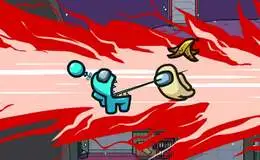The creators of Unity, a popular game creation software, have recently introduced a new pricing structure called the “Unity Runtime Fee.” This means that developers who use Unity will now have to pay an additional fee for each player who installs their game.
In response to concerns raised by game developers about these changes, Unity has released a statement clarifying that only a small group of current Unity Editor users will be affected by the price increase. Developers will only be charged the fee if their game meets certain criteria. For example, if you are using Unity Personal or Plus editions, you will be charged a fee per-game install if your game has generated $200,000 USD in revenue in the past 12 months and has been installed 200,000 times overall. On the other hand, Unity Pro and Unity Enterprise users will be charged per-install for games that have generated $1 million USD in the past year and have reached 1 million lifetime installs.
The amount charged per-install depends on the version of Unity used, and tracking of installs will start from January 1st, 2024 onwards.
To give you an example: If you used Unity Plus and your game earned $200,000 in 2023, and then it sells its 200,001st copy on January 1st, each installation by a new player would cost you $0.20 USD. Each subsequent install by another new player would also cost $0.20.
Since this announcement was made earlier today, some developers have expressed concerns about how install numbers are being tracked and they feel caught off guard by this change. It’s understandable since this payment model adjustment could affect developers who chose to build their games on Unity years ago. Now they worry about future changes or price increases.
Garry Newman from Facepunch Studios, developer of the Unity game Rust, mentioned that this pricing plan would have cost them an additional $410,000 USD if it had been in place since the game’s release. He wrote, “About $40k a year. Last month it would have cost us $2,517.”
This sudden need to budget for such expenses in 2024 can be quite significant even for successful developers.
Unity responded to the criticism by stating, “Today, most Unity Editor users do not pay anything and will not be affected by this change. The Unity Runtime fee will not impact the majority of our developers.” They further explained that only developers with successful games generating revenue above the outlined thresholds will be affected. The program was designed this way to ensure that developers have a chance to achieve success before the install fee takes effect.
Unity also provided an FAQ section about the pricing changes on their website. It provides more details about the thresholds and potential costs. However, it does not address all of the concerns raised by Newman and others regarding how install numbers are tracked. Some developers worry that they may be charged for installations of pirated versions of their games.
In addition to the per-install fee primarily affecting developers with successful games, Unity has also removed their entry-level $40/month Unity Plus subscription tier. The free Unity Personal tier will still be available as well as Unity Pro, which costs $2040 a year.
It has been a challenging past 18 months for Unity. They went through layoffs and office closures earlier this year and last year faced heavy criticism for merging with ironSource, a company known for creating a malware installer in 2015.
Unity CEO John Riccitiello also made controversial comments about indie developers who don’t consider monetization during their creative process. These comments have now made many indie developers think more seriously about monetizing their games.
Why this is a problem
- Unity, the company that makes game creation software, has announced a new pricing structure called the “Unity Runtime Fee”.
- This means that developers who use Unity will have to pay an extra fee for each player that installs their game.
- The fee will only be charged to developers whose games have made a certain amount of money and have been installed a certain number of times.
- Many developers are unhappy about this change because it could cost them a lot of extra money.
Key Facts
- Developers using Unity Personal or Plus editions will be charged a fee per-game install if their game has generated $200,000 USD in revenue in the past 12 months and has been installed 200,000 times across its lifetime.
- Unity Pro and Unity Enterprise users will be charged per-install for games that have generated $1m USD in the past 12 months and which have 1 million lifetime installs.
- The amount charged per-install depends on the version of Unity used.
- Installations will only start being tracked from January 1st, 2024 onwards.
- Some developers are concerned about how install numbers are being tracked and worry they might be charged for pirated versions of their games.
- Unity has also eliminated the entry-level $40/month subscription tier, which has upset some small indie developers.





